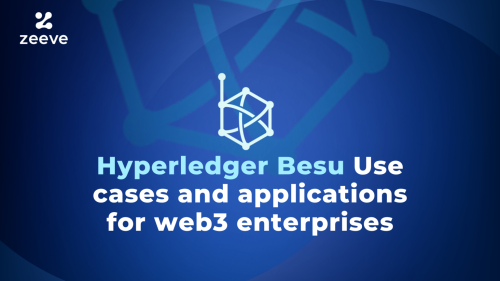Blockchain Solutions to MANAGEMENT CHALLENGES and GSA ACTIONS Fiscal Year 2023 Budget
Summary of the General Services Administration (GSA) management challenges and actions outlined in the FY 2023 Congressional Justification (CJ) document:
- Establishing and maintaining an effective internal control environment: The GSA is working to improve its internal control environment by implementing risk-based approaches and enhancing its systems, processes, and data analytics.
- Improving contract administration: The GSA is focused on improving the efficiency and effectiveness of its contract administration processes by implementing new technology, improving data quality, and enhancing collaboration with stakeholders.
- Enhancing government procurement: The GSA is working to modernize its procurement processes by consolidating its multiple award schedules program, implementing procurement through commercial e-commerce portals, and managing supply chain risks.
- Maximizing the performance of GSA’s real property inventory: The GSA is working to optimize its real property footprint, reduce lease costs, and increase productivity through various initiatives.
- Implementing GSA’s role under the comprehensive plan for reorganizing the executive branch: The GSA is working to align its operations with the government-wide plan for reorganizing the executive branch by consolidating and streamlining programs, improving service delivery, and increasing efficiency.
Note: This is a high-level summary of the challenges and actions and should be further researched in the official document linked.
Smart Contracts can play a critical role in facilitating a more efficient and accountable procurement process that promotes minority participation by increasing transparency, automating compliance tracking, improving contract administration, providing real-time reporting, and increasing the efficiency and security of procurement processes.
-
Increased Transparency: Smart contracts can provide a secure, tamper-proof record of all procurement transactions, increasing transparency and enabling more effective monitoring of minority participation.
-
Automated Compliance Tracking: Smart contracts can enforce rules and automate compliance tracking, reducing the risk of human error and ensuring that minority-owned businesses are given equal consideration in procurement processes.
-
Improved Contract Administration: Smart contracts can streamline contract management by automating contract execution and facilitating real-time tracking and reporting of contract performance, including minority participation.
-
Real-time Reporting: Smart contracts can provide real-time reporting of procurement transactions and allow for real-time monitoring of minority participation in procurement processes.
-
Secure and Efficient Procurement: By reducing the risk of human error and fraud, smart contracts can increase the efficiency and security of procurement processes, creating a level playing field for minority-owned businesses.
About the Author:
Edwin Gutierrez is a GBA certified BlockChain consultant who is part of the leadership team of JBJBusinessGroup Inc a professional services firm that provides emerging technology solutions to increase efficiency, effectiveness and accountability.







Responses